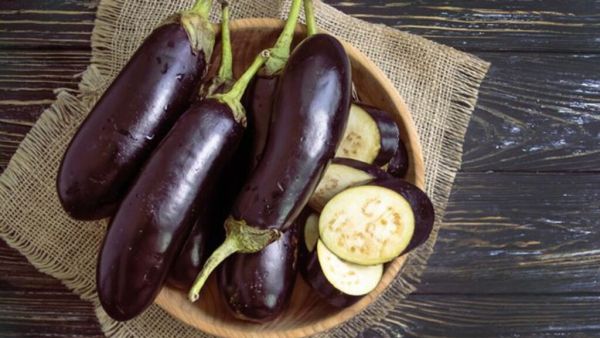
New delhi: The Rainy season is full of delicious vegetables, and brinjal is one of them. But often the question aries whether it is safe to eat brinjal in monsoon? Some people consider it nutritious, while some keep a distance from it consider its effect. In such a situation, it is important to know what kind of effect brinjal has on our body, especially in the Rainy Season.
VIDEO: Maharajganj Enjoying a Bite of Bihar’s Soul Litti-Chokha
Brinjal is Considered a Hot Vegetable. It contains elements such as Iron, Fiber, Vitamin B and Antioxidants which can be beneficial for the body. Brinjals available from February to October are usually rich in nutrition. But its effect can be different in the rainy season if the time there is more humidity and the digestive system gets weak.
Ayurveda Experts Says that Consuming Hot and Gas Producting Vegetables Like Brinjal during Monsoon Can Increase Problems Such As acidity, GAS, Itching and Irritation on the sin. Element “Solanine” Present in Brinjal Can Cause Digestive Problems in Some People.
 Eat brinjal only after cooking it (source: internet)
Eat brinjal only after cooking it (source: internet)
Allergy sufferers: People with skin allergies, eczema or itching should avoid brinjal.
Digestive problems: This vegetable can harm people with acidity or gas problems.
Pregnant women: According to Ayurveda, Brinjal Can Stimulate The Uterus, So Pregnant Women Should Avoid Eating Iting Its.
Sawan 2025: 7 things to avoid during this holy month for spiritual growth
Baigan Bharta: A smoky and flavorful dish made with roasted and mashed eggplant. It seasoned with onions, tomatoes, and spices.
Stuffed brinjal: A Maharashtrian delicacy where small brinjals are stuffed with a mixture of coconut, peanuts, sesame seeds, and spices, then cooked in a gravy base.
Baigan Masala: A flavorful and easy-to-make Indian curry with brinjal, onions, tomatoes, herbs, and spices, ideal with rice or flatbreads.